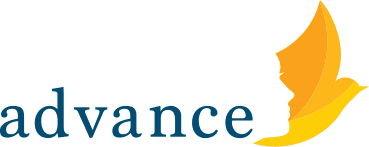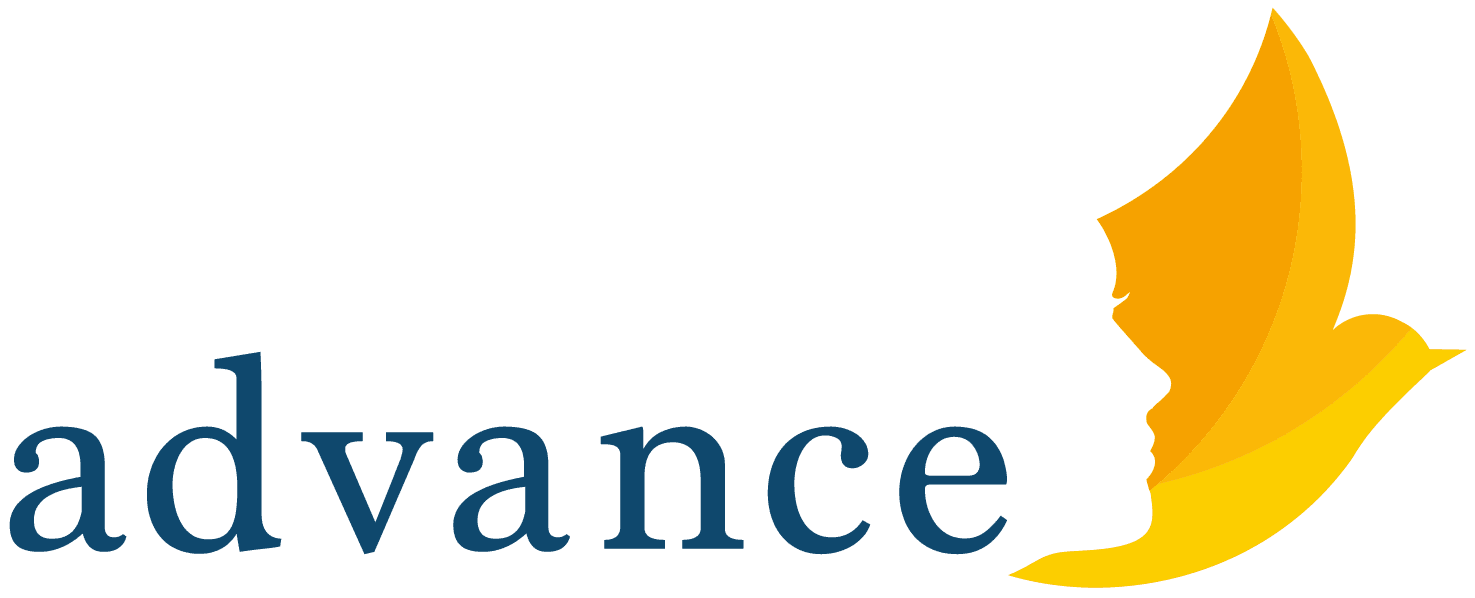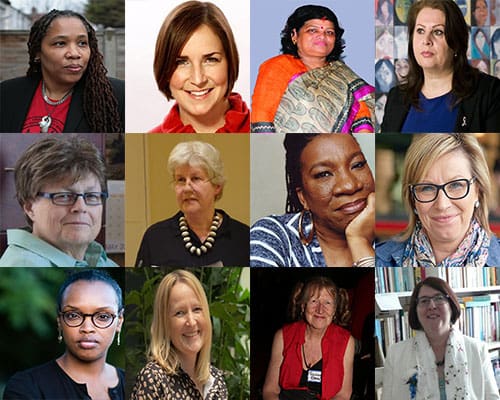From April to June last year, during the Covid-19 lockdown, more than a quarter of a million domestic abuse offences were recorded in England and Wales (ONS) – and those were just the ones that were recorded.
The situation is bleak, the struggle is real. But there is hope. This International Women’s Day (8th March), Advance is celebrating women who have helped change the system that keeps so many living in fear, so many from reaching their full potential. This year, the United Nations (UN) has chosen the campaign theme #ChoosetoChallenge https://www.internationalwomensday.com/. Below is our list of women who have challenged the systemic inequality that leads to women and girls getting hurt, or killed – and won. Progress does not make us complacent – we have a long way to go – but this month, International Women’s Month, we are congratulating women everywhere for working towards Advance’s vision (Who we are) of a world in which women and children lead safe, equal, violence-free lives.
Nicole Jacobs is England Wales’ first ever Domestic Abuse Commissioner. Since taking the post earlier this year, she has been a leading voice for women experiencing domestic abuse throughout the COVID-19 lockdown. Having started her journey into the DA sector with Advance in 2000, Nicole is a strong supporter of a Coordinated Community Approach, taking solutions beyond refuges. She told the Guardian https://www.theguardian.com/society/2021/jan/03/tough-new-domestic-abuse-tsar-prepares-to-shape-laws-to-protect-threatened-women in January: “We have a postcode lottery for victims of domestic abuse. We’ve had refuges for over 50 years and greater awareness, but the public is always surprised to learn that progress in a range of areas including health, housing and policing isn’t where it should be. We have a lot to do.” Nicole chooses to challenge the idea that there are easy answers when it comes to domestic abuse.
Diana Nammi founded the Iranian and Kurdish Women’s Rights Organization (IKWRO) http://ikwro.org.uk/ in 2002 to help stop ‘honour’-based violence and ‘honour’ killings. She did this when a translator she worked with was killed by her own husband. Police did not wish to designate it an ‘honour crime’ because they believed cultural issues were to blame. IKWRO provides direct services for women and girls, including advocacy, training and counselling. They also provide advice and support to professionals from bodies such as the police, social services and schools to help them to understand issues affecting minority ethnic women. Diana chooses to challenge the use of culture to justify murdering women.
Tarana Burke is founder of the Me Too movement. Out of a simple phrase Tarana used to raise awareness of the pervasiveness of sexual abuse and assault came an international phenomenon that continues to revolutionise perceptions of what constitutes harassment and abuse. The movement went viral following allegations against Harvey Weinstein by a number of high-profile actresses, but its resonance in all women’s lives remains strong. Tarana chooses to challenge taboos around women speaking about men’s abuse of power.
Dr Nicola Sharp-Jeffs OBE is the founder of Surviving Economic Abuse https://survivingeconomicabuse.org/, the only UK charity dedicated to raising awareness of economic abuse and transforming responses to it. Through her tireless activism, Nicola has shifted economic abuse from an unknown issue to a major point on the national agenda. Currently, she is advocating its inclusion in the Domestic Abuse Bill, which is making its way into law. This former Advance trustee chooses to challenge centuries of lawmakers overlooking this widespread form of abuse, which is often only one part of a bigger picture of harm.
Marai Larasi MBE has spent decades working to end violence against women and girls. She was executive director of Imkaan https://www.imkaan.org.uk/, an organisation dedicated to addressing violence against Black and minoritised women and girls, and formerly co-chair of the End Violence Against Women Coalition https://www.endviolenceagainstwomen.org.uk/. Marai is currently a College Fellow of Birkbeck, University of London. She is a strong advocate for dedicated BME services, many of which have seen their work taken over by “mainstream” providers often lacking specialist knowledge and expertise. Marai chooses to challenge the narrative that all women’s issues are the same, highlighting the need to see the whole woman and the range of barriers she faces.
The survivors we support are our constant inspiration. They inform the way we work, shaping our service delivery and approach, and amaze us every day with their fortitude, courage and triumphs over adversity. That’s not to say every step of a survivor’s journey is a victory – far from it. The road from living in fear to a safe, stable situation is never easy, and the perseverance and grace of the women we support is truly awe-inspiring. Every day, we see survivors choose to challenge barriers that keep them from the violence-free lives to which everyone has a right.
Manasi Pradhan is founder of the Honour for Women National Campaign, a nationwide movement to end violence against women in India. The campaign has been used to educate communities and influence local decision makers throughout the country. The campaign calls for the inclusion self-defence training for women in educational curriculums, special protection forces for women’s security, and special investigation and prosecuting units for crimes against women in every district. By calling on leaders to improve the system, Manasi chooses to challenge the narrative that abuse should only be handled at home.
Bear Montique and Beryl Foster OBE set up Advance in 1998 to address a gross injustice they saw in their home borough of Hammersmith and Fulham. In 1996, the two women discovered that out of the 2,000 domestic abuse incidents reported in the borough, only ten perpetrators were convicted. Bear and Beryl founded Advance to improve advocacy and access to support in a coordinated way, implementing pioneering initiatives such as the role of Independent Domestic Violence Advisers (IDVAs). As we grow throughout London and beyond, we continue this innovative approach, breaking barriers and ground to keep women and girls safe from harm. Bear and Beryl choose to challenge old ways of working to keep women safe.
Ellen Pence was a pioneering American women’s rights activist and scholar who co-founded the Duluth Domestic Abuse Intervention Project https://www.theduluthmodel.org/, an inter-agency collaboration model used throughout the U.S. and more than 17 countries worldwide. Advance founders Bear Montique and Beryl Foster based our charity’s service delivery on the Duluth Model, which states that “women and children are vulnerable to violence because of their unequal social, economic, and political status in society”. It is on this basis Advance developed our holistic survivor-centred approach. Ellen chose to challenge narrow views of domestic abuse.
Nimco Ali OBE is a leading advocate for a woman’s right to safety, her work primarily focused on ending female genital mutilation (FGM). Having been subjected to FGM as a child, Nimco has called for societal recognition that FGM is part of a wider picture of gender-based abuse. In 2010 she co-founded the non-profit Daughters of Eve before founding the Five Foundation https://www.thefivefoundation.org/, a global campaign to end FGM. Nimco chooses to challenge societal norms that are harmful to women.
Yolanda Bako is an domestic abuse activist. A revolutionary figure in the American women’s movement in the 1970s, she co-founded New York City’s first state-funded women’s shelter, Women’s Survival Space. A founding member of the New York City Mayor’s Task Force on Rape, she coordinated the 1976 Women’s Walk Against Rape in Central Park, telling the New York Times, “We have the right to use the world at night.” Yolanda chooses to challenge the limitations women face.
Rosie Batty is a leading domestic abuse campaigner. Her activism was sparked by her son’s murder, at the hands of his father. Rosie speaks publicly about this and her own experience of domestic abuse, on a mission to change attitudes, inform and influence government initiatives and funding. She works primarily in Australia. In 2019, Rosie was appointed an Officer of the Order of Australia in the general division as part of the Queen’s Birthday 2019 Honours recognition for her “distinguished service to the community as a campaigner and advocate for the prevention of family violence”. By sharing her experience to help change the system, Rosie chooses to challenge the shame that survivors can be labelled with.
To find out how Advance works with partner organisations to keep women and girls safe in London, check out our free webinar on 11th March




